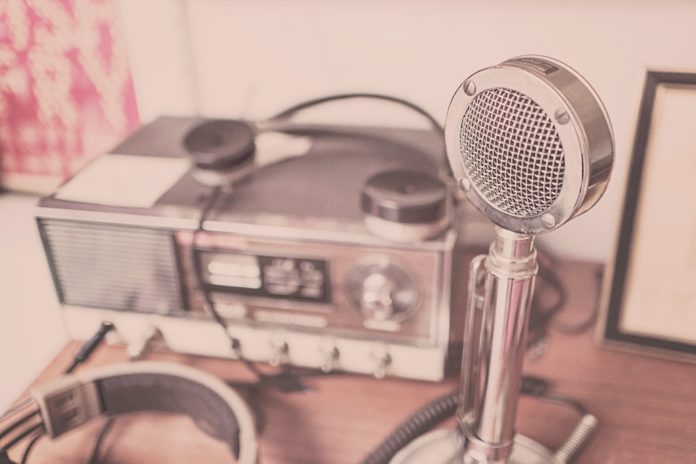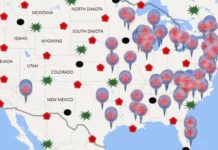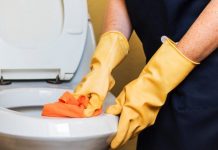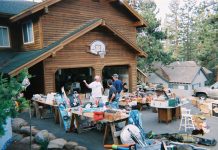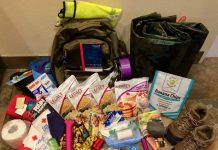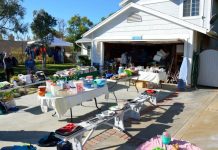I remember growing up as a kid communication was a whole lot different. Those were the days when my mother would yell out the window and it felt like no matter where we were we could hear her calling us. Then came the days of the pager (Yes, I had one) Those days we knew exactly where all the payphone in the whole town were, and we spoke in code. As I reflect on the old days it is scary, what if the SHTF what would we have done back then? Well, I guess the answer is we would have figured out how to get home. That’s how it was then, unlike today when kids can’t even make their own bed.
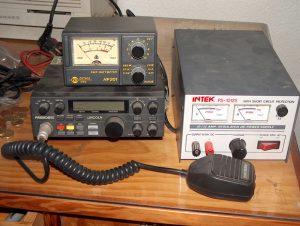

Now, as far as HAM radios they have come along way from the days of the CB. Although I recommend having a few and knowing how to set them up and use them. In my preparedness group, it’s part of my COMM plan. When you first get into the preparedness movement you will hear many preppers tell you that you need to have a HAM radio. However, many don’t explain why or what can be done with a HAM radio. In a grid-down situation, many HAM radio operators will be one step ahead of the curve.
Related: Communicating when the SHTF
“Tough times don’t last. Tough and prepared people do. (Robert H. Schuller, American pastor)”
- Grid down/SHTF Communications: In a grid down situation the chance of having cell phone service will be slim to none. And in an SHTF situation, you never know what could happen so having a backup way to communicate is going to be paramount. HAM radio equipment can span from a mobile handheld radio to an elaborate base station unit it will depend on what your power needs are. Ensure you have a backup way to power for whatever kind of radio you have. Here are a few options:
- Solar Power
- Extra Batteries w/battery charger
- Generator (Don’t forget the extra gas or propane)
2. The ability to cover longer distances in an SHTF: HAM radio has 3 different three different bands. UHF, VHF and HF and you will need to know what they mean so you can effectively pick what kind of radio and antenna you will need. When setting up a COMM plan with your group or just wanting to reach all over the world you will have to decide if you will want to just use signal channels or if you want to use repeaters to communicate. Also, there are 3 different kinds of licenses Tech, General, and Extra.
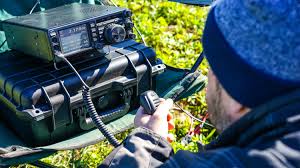

3. Finding out local information and meeting like-minded people: Part of being a good HAM radio operator is being able to use the equipment and how to listen. When an emergency occurs HAM operators will be relaying information constantly like during hurricane Katrina. While you are communicating you will have the opportunity to meet all kind of people which will give you the chance to meet like minding people you can reach out to during an emergency or why the SHTF. I have met many great people on HAM radio and recommend that you throw your call sign out there and make contacts.
4. Prepper group communications: If you are lucky enough to find the right people to start a prepper group then using HAM radio is a must. Creating a COMM plan with your group will help keep everyone on the same page with what the current situation is and with what is going on during a disaster or when the SHTF. Having a weekly group check-in on different frequencies is a great way to be sure your equipment and your skill as a HAM operator is up to par.
5. The ability to Counter or Disseminate Disinformation: In a disaster or SHTF scenario there will likely be enemies spreading propaganda. They will most likely take over local radio stations internet sites and podcasts (if there is power) to send out the propaganda. In this situation, it will be valuable to be able to communicate with other locals to get a better understanding of the situation.
Related: Avoid These Prepper Mistakes
Here are a few more things to consider getting into HAM radio or even getting a CB is not expensive to start there are several reasonable or even cheap options you can buy. The test for the TECH license is not hard to pass is 35 questions test and you need to get 26 correct answers to pass. Keep in mind to transmit on the radio you will need a call sign issued by the FCC. Do not talk on the radio without it, but you can listen and learn while you are studying or waiting for the call sign to get issued.



